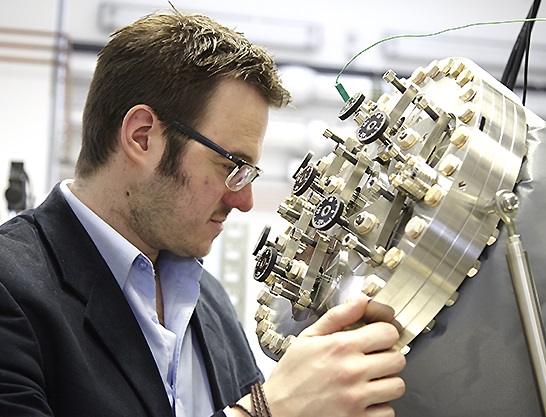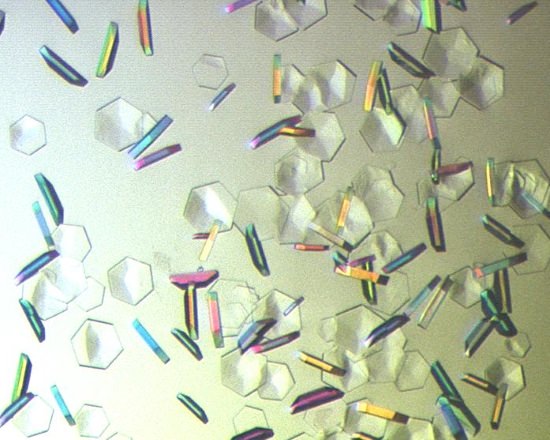Links to external sources may no longer work as intended. The content may not represent the latest thinking in this area or the Society’s current position on the topic.
Newton Advanced Fellowships
As part of the Newton Fund, the Royal Society has launched this scheme to provide established international researchers with an opportunity to develop the research strengths and capabilities of their research group through training, collaboration and reciprocal visits with a partner in the UK. The skills and knowledge gained should lead to changes in the wellbeing of communities and increased economic benefits.
This award is currently available to international early career group leaders to develop their research by linking them with some of the best research groups in the UK. The aim is to:
- support the development of a well-trained research community who can contribute to advancing economic development and social welfare of the partner country by transferring new skills and creating new knowledge
- strengthen research excellence in partner countries by supporting promising independent, early to mid-career researchers, and their research groups and networks, to develop their research through training, collaboration, reciprocal visits, and the transfer of knowledge and skills from the UK
- establish long-term links between the best research groups (and networks) in partner countries and the UK to ensure that improvements in research capacity are sustainable in the longer term. Such long-term links will also benefit the UK, securing our position with partner countries as the scientific partner of choice
Research must be within the Royal Society’s remit of natural sciences, which includes but is not limited to biological research, chemistry, engineering, mathematics and physics. For a full list, please see the breakdown of subject groups and areas supported by the Royal Society.
The Newton Advanced Fellowship is in partnership with the Academy of Medical Sciences. Applicants for clinical or patient-orientated research should apply to the Academy of Medical Sciences.
Am I eligible to apply?
You can apply for this scheme if you:
- have a PhD or equivalent research experience
- have less than 15 years of postdoctoral experience
- hold a permanent or fixed-term contract in an eligible university or research institute, which must span the duration of the project
- are based in one of the eligible Newton Fund partner Countries (see list below)
Collaborations should focus on a single project involving an overseas-based researcher (“the Applicant”) and a UK-based researcher (“the Co-applicant”).
Awards are currently available for scientists in the following countries:
- Brazil, in partnership with CONFAP and CNPq, where two year awards are available.
- Turkey, in partnership with TUBITAK, where three year awards are available.
The Royal Society and Academy of Medical Sciences have established partnerships with funding organisations in each of these countries (listed above). These partners are offering similar opportunities for UK researchers wishing to visit partner countries.
Before applying, please ensure that you meet all the eligibility requirements, which are explained in the scheme notes.
What is the scheme’s value and tenure?
This scheme provides up to £37,000 per year for either two or three years, depending on the country involved, covering:
- salary top up of £5,000 for the overseas-based researcher and/or project leader ("the Applicant") from the partner country
- research support
- travel and subsistence
- training costs
What is the application process?
Applications should be submitted through the Royal Society’s grants management system Flexi-Grant®.
Your application will go through the process detailed on the Making a grant application page overseen by the Newton Advanced Fellowships Biological Sciences and Physical Sciences Panels.
You will be notified of the result of the application process approximately six months after the round closes.
Please note that confirmation of support from the UK and overseas heads of department will need to be completed before the advertised deadline in order to successfully complete and submit the application. The Research Office at the UK host organisation will not be able to approve your application for submission to the Royal Society until the departmental supports and application form have been completed. Applicants should bear this in mind when coordinating the completion of the application prior to submission.
The Royal Society recognises that diversity is essential for delivering excellence in science, technology, engineering and mathematics (STEM). The Society wants to encourage applications from the widest range of backgrounds, perspectives and experiences to maximise innovation and creativity in science for the benefit of humanity. We regularly review and revise processes to help ensure that all talented applicants have an equitable chance to succeed as per the assessment criteria. This includes ensuring all panel members are briefed on unconscious bias in decision making as part of our assessment process.
Support for applicants with disabilities
The Royal Society welcomes applications from scientists with disabilities and provides adjustments to ensure that they can participate fully in the selection process. If you need an adjustment when accessing the application form, attending interviews, or for any other part of the application process, please contact the Grants team on newtonadvancedfellowships@royalsociety.org or +44 20 7451 2666. Adjustments can include, but are not limited to:
- extension of the deadline
- additional support to complete the application form
Read further guidance about the Newton Fund and other overseas opportunities.
For more information regarding the scheme, please contact the Grants team on newtonadvancedfellowships@royalsociety.org or call us on +44 20 7451 2666.



